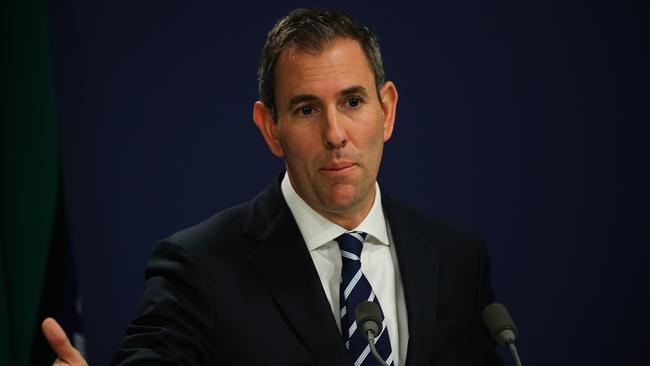
While Chalmers has made clear that decisions can be made before then, he has effectively kicked the can down the road until after the next federal election before decisions have to be made.
This runs somewhat counter to his press release headline, A more dynamic and competitive economy.
It is a classic politician’s response – we have made a decision, we are a having an inquiry – which is used all the time by governments, including this one, when they hand references to the ACCC on everything from childcare to electricity prices and bank deposit rates.
Now the government has the ACCC looking at the issues plus a special Treasury task force under economist Jason McDonald and ACCC lawyer Marcus Bezzi, looking at much of the same issues.
Can someone please make a decision.
Even then some decisions made recently make a mockery of competition concerns, like restricting flights from Qatar Airways to help support Qantas, when the door should be wide open and international carriers be allowed to take domestic passengers.
How is it that successive state governments have opened the door to let Transurban dominate 90 per cent-plus of Australian tollroads, handing the company massive profit margins?
The present corporate reporting season has underlined the problems with an overconcentrated industry, which has allowed CBA to make extraordinary double-digit returns while cost-of- living concerns dominate the political agenda and the big insurance, energy and supermarket companies get to keep increasing prices unchecked by competition.
If it’s all so important, one might have thought the government could have made decisions before now, especially on the first agenda topic, recommended merger changes, which were first recommended by then ACCC chair Rod Sims in September 2021 and were endorsed by his successor Gina Cass-Gottlieb in March this year.
Sims will be on the task force expert panel along with Grattan’s Danielle Wood which means he gets to review his own recommendations, but then sadly someone else has to make the decisions.
The changes include compulsory notification of mergers and an effective reversal of the onus of proof on mergers, which would require companies to prove their merger didn’t significantly lessen competition.
This applies now for authorisation reviews like ANZ and Suncorp.
ANZ will this week formally lodge its appeal with the Competition Tribunal against the ACCC rejection, ahead of Friday’s deadline.
The prevailing rule is if the ACCC is in doubt the deal is rejected.
Decisions on the legal changes are overdue, as are the changes long sought by Assistant Treasurer Andrew Leigh to ban non-compete clauses which restrict one in five workers from getting a new job.
The tricky bit will be changing the law to ban non-compete clauses without infringing the present exemption to issues like collective bargaining and other industrial practices.
The good news from today’s statement was placing competition issues permanently on the agenda of the State-Federal Relations Council comprised of state and federal treasurers.
The 1993 Hilmer review succeeded in landmark changes for one reason, the then Prime Minister Paul Keating backed Fred Hilmer’s recommendations, but without this political support reform dies.
This happened to much of the 2015 Harper review which at least managed to get changes to the abuse of market power provisions.
The task force was presented with some massive challenges most notably “providing advice on competition issues raised by new technologies, the net zero transformation and growth in the care economy”.
This pretty much covers the entire agenda from aged care, to NDIS to what to do with the digital platforms and energy reform.
The issues involved are crucial, but on technology Europe and other regions have moved ahead of Australia with specific laws on digital advertising competition and the power of Google et al.
The ACCC has written plenty of reports on the issues but these are on the shelf in the backrooms of Treasury.
Structural reform is clearly a long-term issue requiring state and federal agreements covering health and education, along with state government decisions to maximise privatisation receipts with zero thought on competition issues.
In concept there is much to support in Chalmer’s release but applause will come when he actually makes the decision to do something other than announce another review.
Chalmers played down the two-year time line at a press conference on Wednesday, saying “this is not going to be, as Andrew Leigh said before, a two-year process where there’s nothing for two years, and then a big report at the end of it.
“It will be iterative, it will be methodical, we’ll work through the issues in a sequenced way.”
The timing remains to be seen and the Treasurer has given himself plenty of cover with no real commitments.




Treasurer Jim Chalmers’ welcome acknowledgment of the importance of competition policy to productivity reform is negated by his stated two-year timeline for the competition task force.